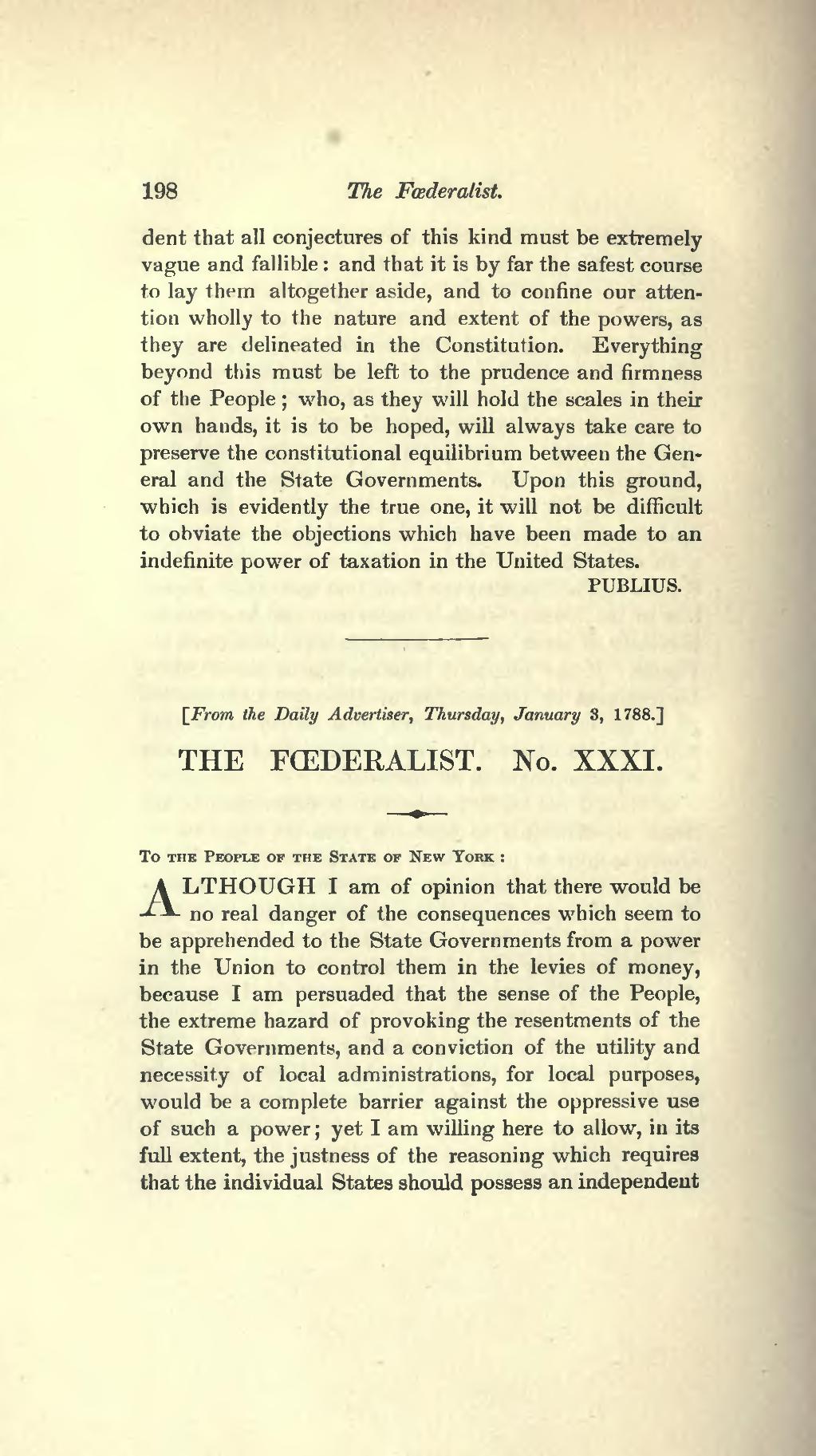dent that all conjectures of this kind must be extremely vague and fallible: and that it is by far the safest course to lay them altogether aside, and to confine our attention wholly to the nature and extent of the powers, as they are delineated in the Constitution. Every thing beyond this must be left to the prudence and firmness of the People; who, as they will hold the scales in their own hands, it is to be hoped, will always take care to preserve the constitutional equilibrium between the General and the State Governments. Upon this ground, which is evidently the true one, it will not be difficult to obviate the objections which have been made to an indefinite power of taxation in the United States.
PUBLIUS.
[From the Daily Advertiser, Thursday, January 3, 1788.]
THE FŒDERALIST. No. XXXI.
To the People of the State of New York:
ALTHOUGH I am of opinion that there would be no real danger of the consequences which seem to be apprehended to the State Governments from a power in the Union to control them in the levies of money, because I am persuaded that the sense of the People, the extreme hazard of provoking the resentments of the State Governments, and a conviction of the utility and necessity of local administrations, for local purposes, would be a complete barrier against the oppressive use of such a power; yet I am willing here to allow, in its full extent, the justness of the reasoning which requires that the individual States should possess an independent

